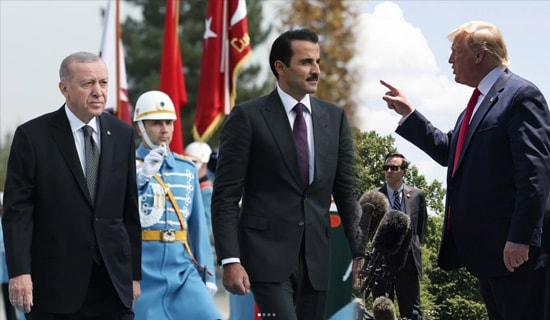The following are excerpts from an interview with Egyptian First Lady Suzanne Mubarak, which aired on Al-Arabiya TV on March 8, 2007.
TO VIEW THIS CLIP VISIT: http://www.memritv.org/clip/en/1399.
I do not Believe That in Egypt We Can Prohibit [Polygamy] by Law
Interviewer: "What is your opinion on the issue of polygamy, and is it possible that what happened in Tunisia will also happen in Egypt – that polygamy will be prohibited?"
Suzanne Mubarak: "I do not believe that in Egypt we can prohibit it by law. Perhaps there were different circumstances in Tunisia, and the current ideologies did not exist back then. Tunisia can be considered fortunate for having made many decisions that benefited the woman and the family at that time, and perhaps today we are unable to make such decisions so easily. Polygamy cannot be prevented by force, but through education. It will cease when men realize that marriage is sacred, and that the family... I am astonished how a man can have a wife and a family, and another wife and another family, and he knows... I don't understand... Honestly, this logic is incomprehensible."
[...]
Interviewer: "According to the 2005 UNDP report, 94% of all girls in Egypt undergo circumcision. What have you, in the National Council for Women, been doing about this, and to what extent are these statistics accurate?"
Suzanne Mubarak: "These statistics are clearly incorrect, because they go to some village, and select all the women aged 35 and up. These women have all, indeed, been subjected to this. But if we were to conduct statistics on the younger age groups... Today, we are working to protect them from this procedure. We have a national plan, through the National Council for Childhood and Motherhood, and this is its main concern now. We go to the villages... This too, goes back to the culture, which is based on mistaken concepts. It has nothing to do with religion. Although some people say it is required by the religion, the vast majority of the Arab and Islamic countries do not practice these violations."
Interviewer: "But in African countries..."
Suzanne Mubarak: "They inherited it from the African or Pharaonic culture, thousands of years ago. Based on this, we have a national, comprehensive, and strategic plan, which we began to implement three years ago. We've begun to talk... At first, this procedure was something nobody talked about much."
One of Missions is to Submit New Bills for Legislation in Order to Completely Ban [Female Circumcision]
Interviewer: "Because it hadn't reached the Western media, but the moment there was a scandal, people began to talk about it."
Suzanne Mubarak: "Today, we talk about it with complete openness. We are dealing with it as something that must come to an end, and, Allah willing, it will come to an end soon. We conduct campaigns to promote awareness among mothers, grandmothers, and mothers-in-law. You'd be surprised, but it is the women themselves who lack this awareness. We also urge that it not be conducted outside hospitals, and that it be performed only in cases where it is medically required. We admit that this is insufficient, and we are working through the council... One of our missions is to submit new bills for legislation, in order to completely ban this procedure."
Interviewer: "Why is there no law that prohibits..."
Suzanne Mubarak: "Allah willing, it will happen. Soon..."
Interviewer: "When?"
Suzanne Mubarak: "I can't tell you when, but we are working on it."
[...]
Interviewer: "Do you expect that one day, a woman will be the president of Egypt?"
Suzanne Mubarak: "We still need many years for this to happen."
Interviewer: "Why is this so impossible in the Arab world?"
Suzanne Mubarak: "This also has to do with culture."
Interviewer: "It exists in the Islamic world, but not in the Arab world."
Suzanne Mubarak: "It is all about culture."
Interviewer: "If a woman is elected U.S. president, how will you feel?"
Suzanne Mubarak: "Obviously, I will be very happy. Why not? As long as she has the abilities, the culture, the experience, she should not be any different. Why not? But not yet in our Arab society. Not yet."




.jpg)